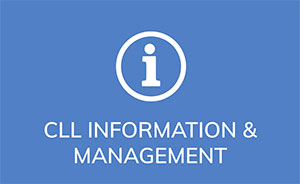The beginning of Blood Cancer Awareness Month (#BCAM) started with a bang with the August 30, 2017 approval of the first gene therapy in the USA.
Quoting from the FDA press release:
“The U.S. Food and Drug Administration issued a historic action today making the first gene therapy available in the United States, ushering in a new approach to the treatment of cancer and other serious and life-threatening diseases.
The FDA approved Kymriah (tisagenlecleucel) for certain pediatric and young adult patients with a form of acute lymphoblastic leukemia (ALL).
“We’re entering a new frontier in medical innovation with the ability to reprogram a patient’s own cells to attack a deadly cancer,” said FDA Commissioner Scott Gottlieb, M.D.”
Sometimes called a living drug, tisagenlecleucel, is made from the patient’s own white blood cells.
This is cellular therapy, just as an allogeneic hematopoietic stem cell transplant is, the only proven curative therapy for CLL. For more background on the evolving and, frankly, diminishing role of transplants in CLL, see this article by Dr. Pagel from our website.
This is an immune therapy, in the same class as the antibodies such as rituximab or obinutuzumab (see this from our website for more on how antibodies work) and the checkpoint inhibitors that take the brakes off the immune system, such as nivolumab or pembrilizomab and help with Richter’s transformation.
CAR-T is both cellular and immune therapy. And, at least in ALL, it is very effective.
While we will be covering this exciting technology in more detail and with much more focus on CLL in a later article, let’s do a simple overview of what’s involved:
- T-cells (a type of white blood cell) are collected from the cancer patient over 3-6 hours in a process called leukapheresis, where the desired cells are spun out to be collected and the remaining cells are returned to the patient.
- These immune T cells are modified to attack a protein (CD19) on the cancer’s surface and then grown outside of the patient over about a month.
- Chemotherapy is usually given during this time to condition the immune system to allow re-infusion of the modified expanded cells, minimizing the risk of rejection.
- The modified T-cells (CAR-T or Chimeric Antigen Receptor T cells) are then re-infused back into the patient,
- In the best case, they grow inside the patient, wake up and attack the cancer, and knock it out completely, with difficult, but manageable toxicities. (In the ALL trial that lead to approval, 83% of the children responded to )
- In the very best cases, the CAR-T cells persist, acting as sentries against the cancer’s re-emergence, and providing durable remissions of 5 years or more.
- In the not-so-great cases,
- The cells won’t grow outside the patient.
- The cells won’t grow when they are re-infused.
- The cells don’t attack the cancer with any force.
- There is too much cancer (tumor burden) for the cells to cope with.
- The cells disappear too fast and the cancer re-emerges.
- In the worse cases, a severe reaction called cytokine release syndrome (CRS) leads to low blood pressure, respiratory distress and even death.
- A related complication is neurotoxicity that can be minor, severe, and even fatal.
- CRS and the neurotoxicity may occur within a day or weeks after the CAR-T infusion, but it is not predictable as to if or when it will occur.
- Tocilizumab blocks the main cytokine, called interleukin-6 (IL-6), that plays a major role in CRS. A cytokine is any substance secreted by immune cells that has an effect on other cells It is so effective that the FDA mandates that CAR-T may only be done in those hospitals that have tocilizumab immediately available.
Lost in all the buzz about the tisagenlecleucel approval on the same day was the news that the FDA also expanded the approval of Actemra (tocilizumab) to treat CAR T- cell-induced severe or life-threatening CRS. In clinical trials in patients treated with CAR-T cells, 7 out of 10 of patients had complete resolution of CRS within 14 days following one or two doses of tocilizumab.
Tocilizumab was the first humanized interleukin-6 (IL-6) receptor antagonist approved to treat rheumatoid arthritis and is now part of the possible drug armamentarium for CAR-T.
The gene therapy research in chronic lymphocytic leukemia is similarly promising and the results have been equally spectacular at times, but there have been setbacks.
In the meantime, we should celebrate that there is a real option for kids with ALL that fail the usual therapies.
These are big steps forward for all of us with blood cancer.
CLL is near the front of the line to next see a CAR-T approved.
Here is a link to the business and cost issues. It is amazing when $475,000 is touted as a bargain, but we will get into that issue another time.
The NIH’s director, Dr. Francis Collins, gives a beautiful historical overview of how we arrived at the breakthrough here.
The future looks bright.
Stay strong.
Brian Koffman, MD 9-12-17

















